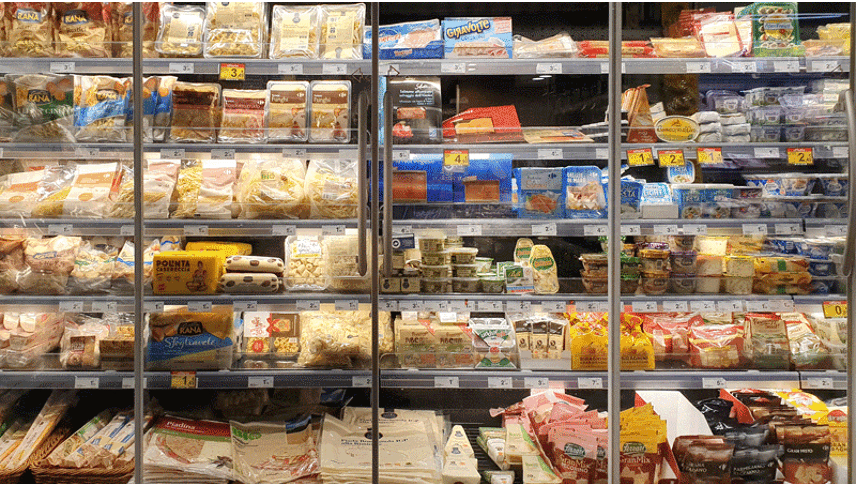Register for free and continue reading
Join our growing army of changemakers and get unlimited access to our premium content

Pictured: Shelves at Carrefour, one of the 30 recipients of the investors' letter. Stock image.
The 185-strong group has today (4 May) sent a letter to executives at 30 of the world’s biggest consumer goods firms and grocery retailers, stating that a failure for faster action to phase down plastics at the source and to improve waste management is building up financial risks.
Recipients of the letter in the consumer goods space include the Coca-Cola Company, Danone, Kellogg, Keurig Dr Pepper, L’Oreal, Mondelez, PepsiCo and Nestle. Retail recipients include Sainsbury’s, Tesco, Target, Marks & Spencer and Carrefour.
The letter calls on recipient businesses to “set a clear vision to drastically reduce the consumption of single-use plastic packaging in absolute terms, phase out hazardous chemicals and, crucially, advocate for – not against – the policy frameworks needed to support these actions”.
It expresses concern that actions taken to date have failed to have an impact at scale and that commitments have not been delivered on time. For example, late last year, the Ellen MacArthur Foundation confirmed that signatories for its Global Commitment are unlikely to make all packaging reusable, recyclable or compostable by 2025.
The letter state, in no uncertain terms, that the continued production of plastics – particularly hard-to-recycle items – are storing up financial risks. Risks include higher costs arising from taxation and extended producer responsibility costs that companies are unprepared from, plus reputational and financial risks from litigation.
It emphasizes that simply improving waste management is not sufficient – less virgin plastics must be produced in the first instance.
Signatories managing more than $10trn of assets are supporting the letter, with more invited to add their names.
Achmea Investment Management’s senior engagement specialist Arthur van Mansvelt said: “Most companies are not acting fast enough in the face of the unfolding plastics crisis. The Global Plastics Treaty offers a unique and historic opportunity to tackle the problem at the source – we need companies supporting its ambition on prevention and reuse, not lobby against it. It’s their chance to be part of the solution.”
The Global Plastics Treaty is being orchestrated by the UN, with the overarching ambition to halt plastic pollution. The initial shape of the Treaty was agreed upon last year and a series of talks will culminate in a finalised version in 2024. It has already been agreed that the Treaty will cover all stages of the plastics life-cycle.
Related news: Businesses encouraged to disclose plastics footprint through CDP for the first time


Please login or Register to leave a comment.